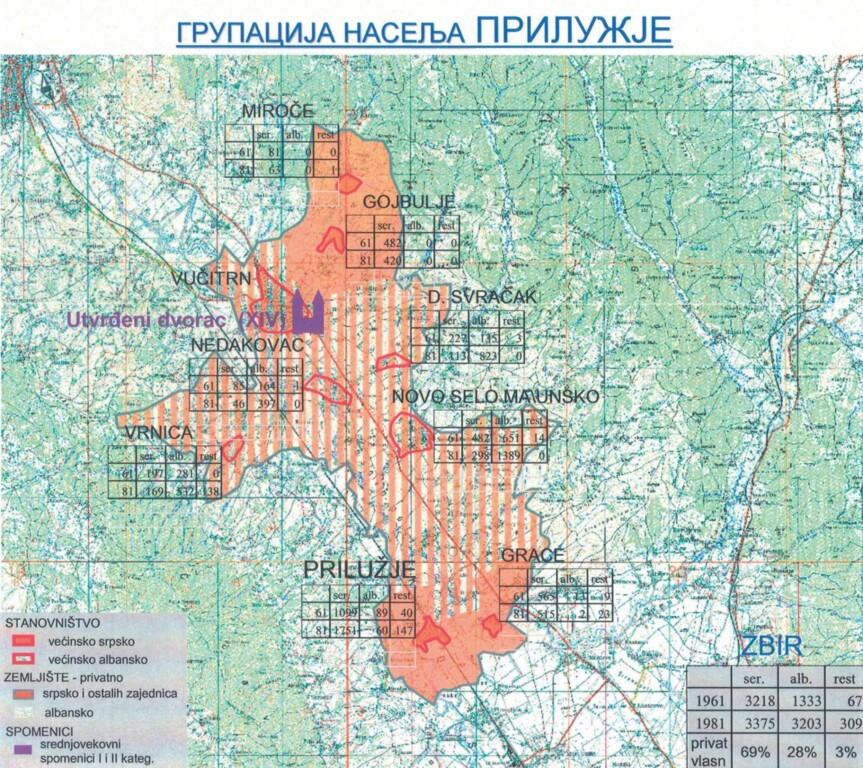Historiography of Vucitrn
Vučitrn is located in the northwestern part of Kosovo Polje, where the southern branches of Kopaonik approach the slopes of Čičavica. Jovan Cvijić called this part of Kosovo the Vučitrn branch. The river Trstenka, which flows into the Sitnica river at the exit from the town, runs through Vučitrn. Sitnica is about 200 meters away from the town. In the 17th century, this river changed its course, leaving the stone bridge from the Middle Ages on dry land.
It is assumed that the Roman town Vicianum was located where Vučitrn is today. Vučitrn became part of the Serbian state during the time of Stefan Nemanja. At that time, it was a small settlement. It emerged as a town later in the period of the Serbian medieval state under the name Vlčitrn. From 1365, it was part of the Branković region.
Vučitrn was the capital of Vuk's son, Đurađ Branković, before the town fell into the hands of the Turks. At that time, it was larger than Pristina, so the Turks chose it as the seat of the Sanjak, which would later be moved to Pristina.
As the seat of the Sanjak, Vučitrn quickly became populated with Turkish residents. It took on an oriental character and grew, so that by the construction of the railway in 1973-1974, it was a larger place than Kosovska Mitrovica.
Folk songs from Vučitrn were recorded by Stevan Stojanović Mokranjac, Miloje Milojević, Danica and Ljubica Janković, and Miodrag Vasiljević. The examples recorded by these collectors testify to a difference in temperament compared to the songs and dances from around Pristina. As the following examples will show, the melodic-rhythmic flow of these songs indicates a development in terms of melodic movements, while the rhythm is uniform with a combination of regular rhythmic groups and dotted figures.
Stevan St. Mokranjac recorded only one song from Vučitrn (no. 37 of the mentioned work), but Miloje Milojević recorded as many as twenty-two: 6, 10, 28, 29b, 43a, 63, 85, 87, 89b, 99, 117, 121a, 149a, 151b, 157, 161, 175, 178, 196, 199b, 204b, and 210. The Janković sisters added another five (referred work no. 27, 28, 29, 30, and 31), and Miodrag Vasiljević ten more (58b, 59, 89b, 185 ("Ah, my darling..."), 195 ("All night the fairies walk"), 232, 272b, 298g, 314, and 388).
